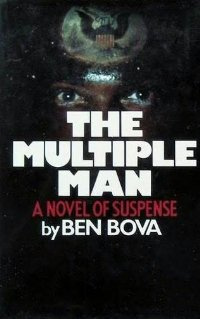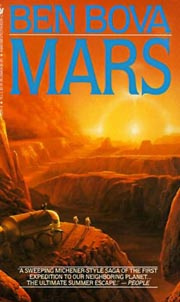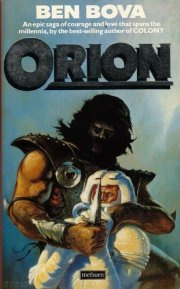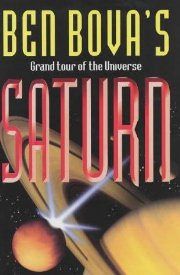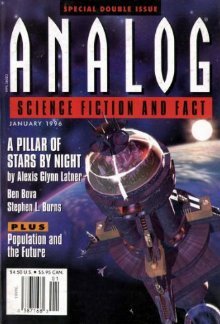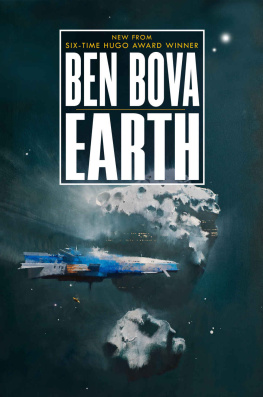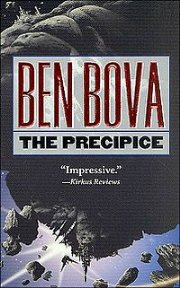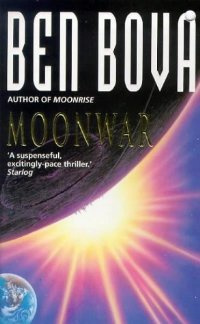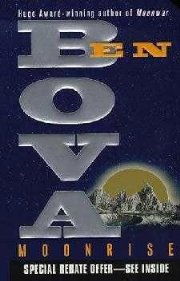ben bova - apes and angels
Here you can read online ben bova - apes and angels full text of the book (entire story) in english for free. Download pdf and epub, get meaning, cover and reviews about this ebook. year: 0, genre: Detective and thriller. Description of the work, (preface) as well as reviews are available. Best literature library LitArk.com created for fans of good reading and offers a wide selection of genres:
Romance novel
Science fiction
Adventure
Detective
Science
History
Home and family
Prose
Art
Politics
Computer
Non-fiction
Religion
Business
Children
Humor
Choose a favorite category and find really read worthwhile books. Enjoy immersion in the world of imagination, feel the emotions of the characters or learn something new for yourself, make an fascinating discovery.

- Book:apes and angels
- Author:
- Genre:
- Year:0
- Rating:3 / 5
- Favourites:Add to favourites
- Your mark:
- 60
- 1
- 2
- 3
- 4
- 5
apes and angels: summary, description and annotation
We offer to read an annotation, description, summary or preface (depends on what the author of the book "apes and angels" wrote himself). If you haven't found the necessary information about the book — write in the comments, we will try to find it.
apes and angels — read online for free the complete book (whole text) full work
Below is the text of the book, divided by pages. System saving the place of the last page read, allows you to conveniently read the book "apes and angels" online for free, without having to search again every time where you left off. Put a bookmark, and you can go to the page where you finished reading at any time.
Font size:
Interval:
Bookmark:

Thank you for buying this
Tom Doherty Associates ebook.
To receive special offers, bonus content,
and info on new releases and other great reads,
sign up for our newsletters.

Or visit us online at
us.macmillan.com/newslettersignup
For email updates on the author, click here.
The author and publisher have provided this e-book to you without Digital Rights Management software (DRM) applied so that you can enjoy reading it on your personal devices. This e-book is for your personal use only. You may not print or post this e-book, or make this e-book publicly available in any way. You may not copy, reproduce, or upload this e-book, other than to read it on one of your personal devices.
Copyright infringement is against the law. If you believe the copy of this e-book you are reading infringes on the authors copyright, please notify the publisher at: us.macmillanusa.com/piracy.
To Christi and Joe Hucks, with thanks for their many kindnesses
We may prefer to think of ourselves as fallen angels, but in reality we are rising apes.
Desmond Morris
Humankind headed out to the stars not for conquest, nor exploration, nor even for curiosity.
Humans went to the stars in a desperate crusade to save intelligent life wherever they found it.
A wave of death was spreading through the Milky Way galaxy, an expanding sphere of lethal gamma radiation that had erupted from the galaxys core twenty-eight thousand years ago and now was approaching Earths vicinity at the speed of light. Every world it touched was wiped clean of all life.
Guided by the ancient intelligent machines called the Predecessors, men and women from Earth sought out those precious, rare worlds that harbored intelligent species, determined to protect them from the death wave, to save them from the doom that was hurtling toward them at the speed of light.
All star flights are one-way voyages.
The stars that beckon to us at night are mind-numbingly distant. Even traveling at nearly the speed of light, it takes decades, centuries to reach just the nearest of them. Then, when the star rovers come back home to Earth, more decades, centuries will have elapsed. The returning travelers will be strangers on the world of their birth.
Some humans accepted that inescapable fate. Some men and women willingly boarded the starships and journeyed into the unknown, driven by personal demons that outweighed all other consequences. Some were among humanitys best and brightest. Some were fleeing into the future willingly. The psychotechnicians who examined and tested them realized that in some cases, the difference between genius and madness was too slim to separate.
The star was called by humans Mithra, after an ancient Persian deity of light and the upper air. In the religion of Zoroaster, Mithra became an attendant of Ahura Mazda, the god of light and goodness.
Mithra was a red dwarf star, less than a tenth of the brightness of the Sun. Some two hundred light-years from Earth, the star was accompanied by six planets, four of them bloated gas giants the size of Jupiter and larger, two others smaller, rocky worldslike Earth.
Mithra Alpha, the planet orbiting closest to the star, was a hot Jupiter: a gas giant world slightly larger than our own solar systems biggest planet, and orbiting so close to its star that its year was a mere twelve Earth days long. Covered with gaudy striped clouds, it bore a planet-wide ocean beneath the cloud deck, populated by a complex biosphere including tentacled octopus-like creatures that filled their world-girdling ocean with sounds.
Communication?
Intelligence?
The next two planetsBeta and Gammaswung round their red dwarf star in forty-year-long, highly elliptical orbits that nearly intersected when they were at their closest approach to the star. Both were small, rocky, Earthlike worlds. Mithra Beta appeared to be lifeless, but Gamma, the outer of the two, bore a thin skin of atmosphere, small seas of liquid waterand life.
Intelligent life.
Preindustrial, little more than paleolithic creatures living in scattered villages, they were totally unaware that the death wave was hurtling toward them.
Mithras three outermost worlds orbited far from the Goldilocks zone where water could be liquid. They were frozen iceballs; lifeless, sterile, silent, and aloof.
Like all the life-bearing planets in the Milky Way galaxy, the Mithra system was threatened by the expanding wave of intense gamma radiation that would kill everything, scrub those planets down to barren, smoking ruins.
If the star-traveling humans didnt save them.
In all the hundreds of billions of planets in the Milky Way, nothing was so rare as intelligence. Intelligent species seldom arose, and often destroyed themselves before they could give rise to practically immortal intelligent machines.
The ancient machine intelligences of the Predecessors recognized the threat that the death wave posed, and had striven for millennia to save as many intelligent species as they could reach. The Predecessors enlisted the help of Earths humankind in their ongoing race against the death wave. In return, they gave the humans the shielding that would protect Earth and the rest of the solar system from inevitable catastrophe. And the knowledge to build ships to span the light-years between the stars.
Humankind rose to the challenge and sent expeditions to the worlds nearby where intelligent species lived, preindustrial civilizations that were blithely unaware of the doom rushing toward them at the speed of light.
Starship Odysseus was one of those missions. It was a lenticular-shaped vessel, propelled by dark energy and capable of reaching relativistic velocity, close to the speed of light.
Its crew and passengers slept the centuries that it took to reach Mithra, their bodies frozen into deepsleep and their memories downloaded into the ships master computer, then uploaded back into their brains once they were thawed and revived.
Now they faced the task of saving a world, and the intelligent creatures who lived on it.
Odysseus s technical staff were a strangely youthful group, picked with meticulous care for their star mission. Nearly all of them were alone in the world, orphans or loners who had no families, no loved ones to keep them from leaving the Earth they knew, hardly any people they cared for or who cared for them.
They flew off to save a world from annihilation, knowing that they would never return to the world of their birth, not caring that whenifthey returned, it would be to an Earth that was more than four hundred years changed from the planet they had left.
Discoveries are often made by not following instructions, by going off the main road, by trying the untried.
Frank Tyger
Adrian Kosoff stood at the rail of the balcony circling the starships main auditorium, smiling like a genial paterfamilias at the young men and women down on the main floor celebrating their arrival at Mithras planet Gamma.
There were almost twelve hundred scientists and engineers on the expeditions technical staff: mostly young, mostly recent graduates from the best schools on Earth, all of them volunteers for this star mission, all of them aware that they had exiled themselves from their homes and everything they knew back on Earth, all of them happy to have completed the two-hundred-light-year voyage successfully. After two years of training on Earth and two hundred years sleeping away the distance to Mithra, they had arrived at last at their destination.
Kosoff was a burly figure of a man, thick torso and limbs, his bearded face square and blunt-featured, his eyes a piercing blue, his thick mop of mahogany-dark hair and bristling beard showing streaks of gray that he refused to alter with rejuvenation treatments.
Next pageFont size:
Interval:
Bookmark:
Similar books «apes and angels»
Look at similar books to apes and angels. We have selected literature similar in name and meaning in the hope of providing readers with more options to find new, interesting, not yet read works.
Discussion, reviews of the book apes and angels and just readers' own opinions. Leave your comments, write what you think about the work, its meaning or the main characters. Specify what exactly you liked and what you didn't like, and why you think so.


